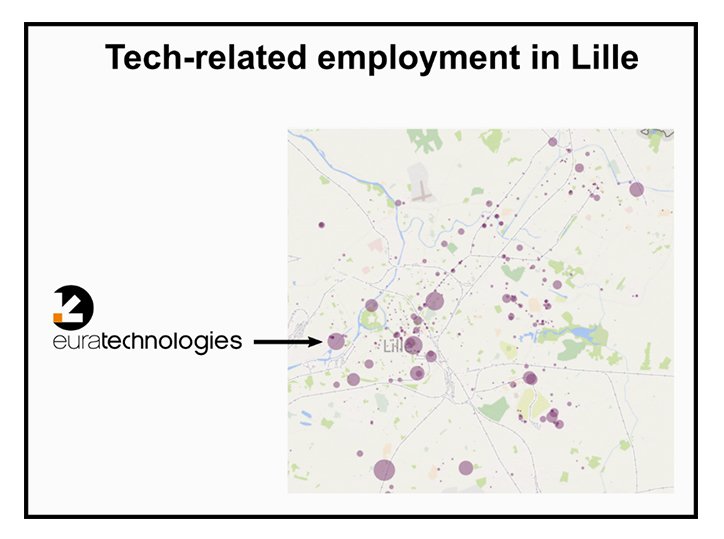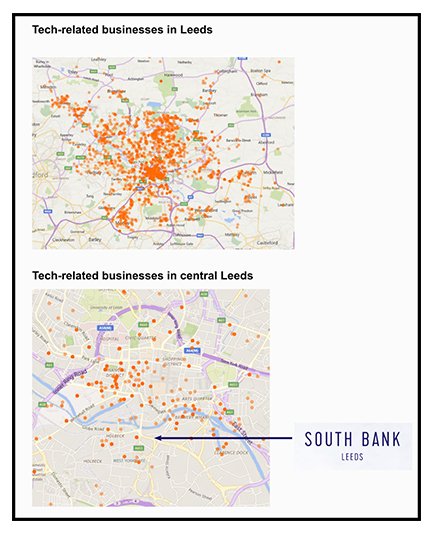
In December 2017, the ODI kicked off three collaborative UK–France projects, which support ways to enhance data collaboration between both countries. Working with partner cities (Manchester & Rennes, Bordeaux & Bristol, Leeds & Lille) each project was given £20,000 to use data to strengthen commercial opportunities or tackle societal challenges.
In this blog, we talk to project lead Tom Forth from The Data City to about find out more about The Data City in Lille and Leeds project – including the key outcomes, lessons learned and future plans.
The project takes innovation-measuring methodologies that have been successfully applied in the UK – and assesses whether they can work in areas of France. It was first tested in Lille which is twinned with Leeds.
What is The Data City's Leeds–Lille project about?We’ve been developing new ways to measure innovation and business success at The Data City for a while. We started in Leeds and then expanded to cover the whole of the UK and Ireland. Working with the city of Lille, which is twinned with Leeds, was a chance for us to expand our techniques to France and then to Europe.
What are your biggest findings, achievements and challenges from The Data City's Leeds–Lille project?Our project uncovered three main findings:
- Open data, supplied by French companies, published in the Sirène database, is a fantastically powerful resource for understanding company structure and growth. It is something that the UK should aim to emulate.
- French data on events and meetups is much harder to capture and analyse. Sites such as Meetup and Eventbrite which are popular in English and Dutch speaking places are barely used in France. We were unable to measure this part of the innovation ecosystem in Lille with our existing tools because most events were organised using custom online tools.
- Universities choose to collaborate based on shared excellence, with no obvious legacy of twinning arrangements.

How has The DataCity's Leeds–Lille project helped connect data innovation in the UK and France?This year (2018), Leeds and Lille celebrate their 50th year of twinning and relations between the cities are excellent. The success of Euratechnologies in Lille is of great interest in Leeds with an emphasis on using its strengths in data, artificial intelligence (AI), and creative technologies to create more and better jobs. With Lille Metropolis hosting The World Design Capital in 2020, Leeds’s design and creative industries have a renewed interest in collaborating, with both Leeds Digital Festival and Leeds International Festival exploring new opportunities to partner with Lille.
Beyond just Leeds and Lille, our finding that university partnerships develop most strongly as a result of shared excellence, with no obvious legacy of twinning arrangements was important. Lille has great strengths in computing research and its universities collaborate most strongly with places in the UK that share that excellence, such as Cambridge, Manchester, Edinburgh and London. This has wider implications for how government could best support international collaboration and as a result of this work we are now developing such tools.
Where can we found out more about DataCity's Leeds/Lille project? Throughout our project we’ve been blogging about what we’ve done, and sharing our methods in the open. Many of our findings and techniques are already being used elsewhere. You can see more about our outputs and also read all of our updates on The Data City website.

What’s next for The DataCity's Leeds–Lille project?One of the reasons that we work in the open and share most of what we do is to increase the impact of our work. For example, our findings from this project on the regional and international challenges of measuring events as a proxy for innovation are already being used by TechNation to improve its methods. We are also continuing to look for better data for more parts of the UK and Europe.
The Data City recently secured significant private investment so that it can expand to answer many more of the questions that came out of this project. We are developing a dedicated tool to look at research collaborations and expanding it to consider business interactions and patents.
And of course the cities of Lille and Leeds continue to work together in many ways, on culture, digital, design, and more, as they have done for half a century.